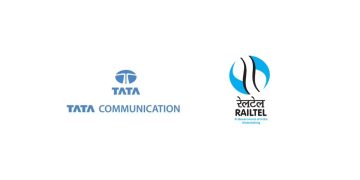In a bid to bolster domestic manufacturing and promote self-reliance in the electronics sector, the Directorate General of Foreign Trade (DGFT) has announced a postponement of the implementation of import licensing requirements for laptops, tablets, and personal computers. The decision is a significant move by the government to shape the electronics industry landscape in India. Here’s an in-depth look at the key aspects of this development.
Transition Period for Industry Adaptation:
The extension until October 31, 2023, provides companies and traders with a transition period to navigate and adjust to the new regulations. During this time, import consignments can be cleared without the need for a license. However, from November 1 onwards, a valid license for restricted imports will be essential.
Import consignments can be cleared till 31.10.2023 without a license for restricted imports. For clearance of import consignments with effect from 01.11.2023, a valid License for Restricted imports is required: Directorate General of Foreign Trade, Government of India pic.twitter.com/li4s6tZt6K
— ANI (@ANI) August 4, 2023
Liberal Transitional Arrangements:
The DGFT’s move to introduce liberal transitional arrangements for the import of laptops, tablets, all-in-one personal computers, and servers shows the government’s intention to create an environment that eases the transition for the industry. These arrangements acknowledge the complexity of adapting to new regulations and seek to minimize disruptions.
Emphasis on Self-Reliance:
The government’s emphasis on self-reliance, encapsulated in the Production Linked Incentive (PLI) 2.0 for IT Hardware, is evident in this decision. By placing restrictions on electronics imports, the government is fostering an environment where domestic production can thrive, reducing dependency on foreign imports and ensuring the growth of local manufacturing.
➡️India is becomng one of worlds fastest growing markets for Digital products includng Laptops, Servers etc.
➡️India and DigitalNagriks will consume millions of Digital products in coming Techade.
➡️Rapid digitilization / cloudification of our economy AND rapid growth of our… https://t.co/gdMcNnsEUT
— Rajeev Chandrasekhar 🇮🇳 (@Rajeev_GoI) August 4, 2023
Exemption for Research and Development:
The provision allowing the import of a limited number of items per consignment for research and development purposes underscores the government’s support for innovation and technological advancement. This exemption recognizes the importance of testing, benchmarking, evaluation, and repair in the development cycle of electronic products.
Facilitating Licensing Process:
The DGFT’s efforts to create an online portal for license applications and its commitment to expedite the issuance of licenses within 1-2 days are steps towards streamlining the regulatory process. These initiatives aim to make it easier for companies and traders to comply with the new norms.
Enhancing India’s Electronics Ecosystem:
The decision to delay import licensing requirements is a strategic step towards enhancing India’s electronics ecosystem. With electronics imports contributing significantly to trade, this move is expected to drive the local manufacturing sector’s growth and create new opportunities for businesses and entrepreneurs.
Balancing Domestic and Global Interests:
While the government seeks to promote domestic manufacturing, it is also essential to strike a balance between self-reliance and global collaboration. The transition period provided for in this decision reflects the government’s willingness to collaborate and facilitate a smoother shift for the industry.
As India moves forward with its plans to foster a robust electronics manufacturing ecosystem, the impact of these policies on the industry’s growth trajectory will be closely watched. The extended transition period, combined with the exemption provisions and facilitation efforts, presents a comprehensive approach to shaping the future of the electronics sector in the country.












































































































































































